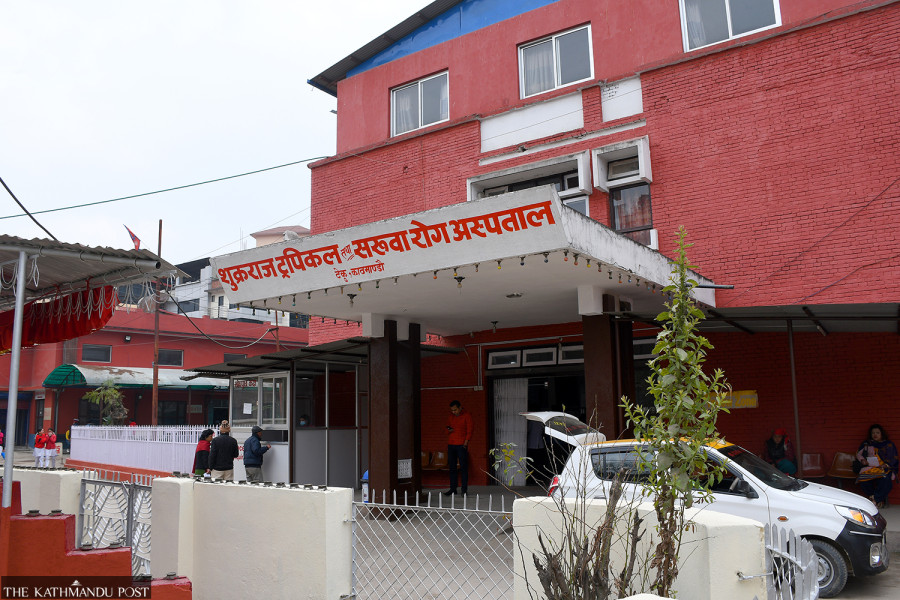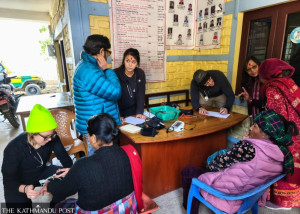Health
Cholera outbreak in Kathmandu, authorities unaware
Confirmation of the Vibrio cholera 01 Ogawa serotype in an individual in Kathmandu raises the risk of an outbreak during the monsoon season.
Arjun Poudel
At least one case of cholera, a highly contagious and potentially fatal disease, has been confirmed in Kathmandu.
According to the Sukraraj Tropical and Infectious Disease Hospital, a 62-year-old man from Makwanpur district, who had been admitted with severe diarrhoea some two weeks ago, tested positive for the deadly disease.
The man is said to have been residing in Kathmandu for a long time.
“The health condition of the patient was serious when he was brought to our hospital,” said a health worker serving at the Hospital’s Emergency Department, asking not to be named, as the official was not authorised to speak to the media. “The stool test confirmed a cholera infection.”
According to health workers at the hospital, Vibrio cholera 01 Ogawa serotype has been confirmed in stool samples of infected patients.
Cholera is a highly infectious disease that causes severe diarrhoea and vomiting, which causes dehydration and can lead to death within a few hours if left untreated. The World Health Organisation says cholera is a global threat to public health and an indicator of inequality and a lack of social development.
The Kathmandu Valley witnessed a massive cholera outbreak in the monsoon of 2022 in which 77 cholera-positive cases were confirmed. Hundreds of people suffered from diarrheal infections that continued for months.
Experts say an outbreak of cholera in Kathmandu Valley before the onset of the monsoon is concerning, as rainwater contaminates most water resources, increasing the risk of more people getting infected from water-borne diseases including cholera.
“More people could have been infected with cholera, as not all cases become severe and not all patients do not go to the hospital for treatment,” said Dr Sher Bahadur Pun, chief of the Clinical research unit at the Sukraraj Hospital. “Many patients buy medicines from nearby pharmacies to recover at home. Only serious cases end up in hospitals.”
Meanwhile, officials at the Health Office Kathmandu said that they are unaware of any confirmed cholera cases in the district.
“We don’t have information about a cholera outbreak in recent days,” said Dr Arjun Sapkota, chief of the Health Office in Kathmandu. “We are the agency responsible for investigating the causes of outbreaks of deadly diseases, and as of today (Friday) we don’t have such information.”
Sapkota informed that one case of cholera infection was reported from Sitapaila in Kathmandu about three months ago. An Indian national who is a truck driver was admitted to the Sukraraj Hospital at that time.
“We had mobilised our team to investigate the source of the outbreak,” said Sapkota.
Doctors warn that concealing outbreaks of deadly diseases such as cholera and failing to investigate their sources and inform the public about the risks can prove counterproductive, as the deadly bacteria keep spreading in communities if preventative measures are not taken.
Due to poor sanitation and hygiene conditions, Nepal is highly vulnerable to water-borne diseases including diarrhoea, dysentery, typhoid, hepatitis, and cholera, with thousands of people getting infected with them every year.
Doctors say contaminated water and food are the main catalysts for the spread of cholera in the Kathmandu Valley. Last year, health authorities administered an oral cholera vaccine in wards 11, 12, and 13 of the Kathmandu Metropolitan City that were highly affected by the outbreak.
In October 2021, a Vibrio cholera outbreak in several local units of Kapilvastu district killed at least four people including three minors—boys aged seven and two, and a five-year-old girl. Another deceased was a 45-year-old man.
Following the outbreak, the Health Ministry had launched a mass vaccination drive against the disease after all its attempts failed to curb the infection.
The World Health Organisation says that a multifaceted approach is key to controlling cholera and reducing deaths.
Doctors say launching awareness drives against water-borne diseases and ensuring safe drinking water are the only ways to save people from dying of water-borne diseases, including cholera.
A combination of careful survey, ensuring safe drinking water, maintaining sanitation and hygiene, social mobilisation, and treatment is required to contain the spread of the infection, according to doctors.




 10.12°C Kathmandu
10.12°C Kathmandu














